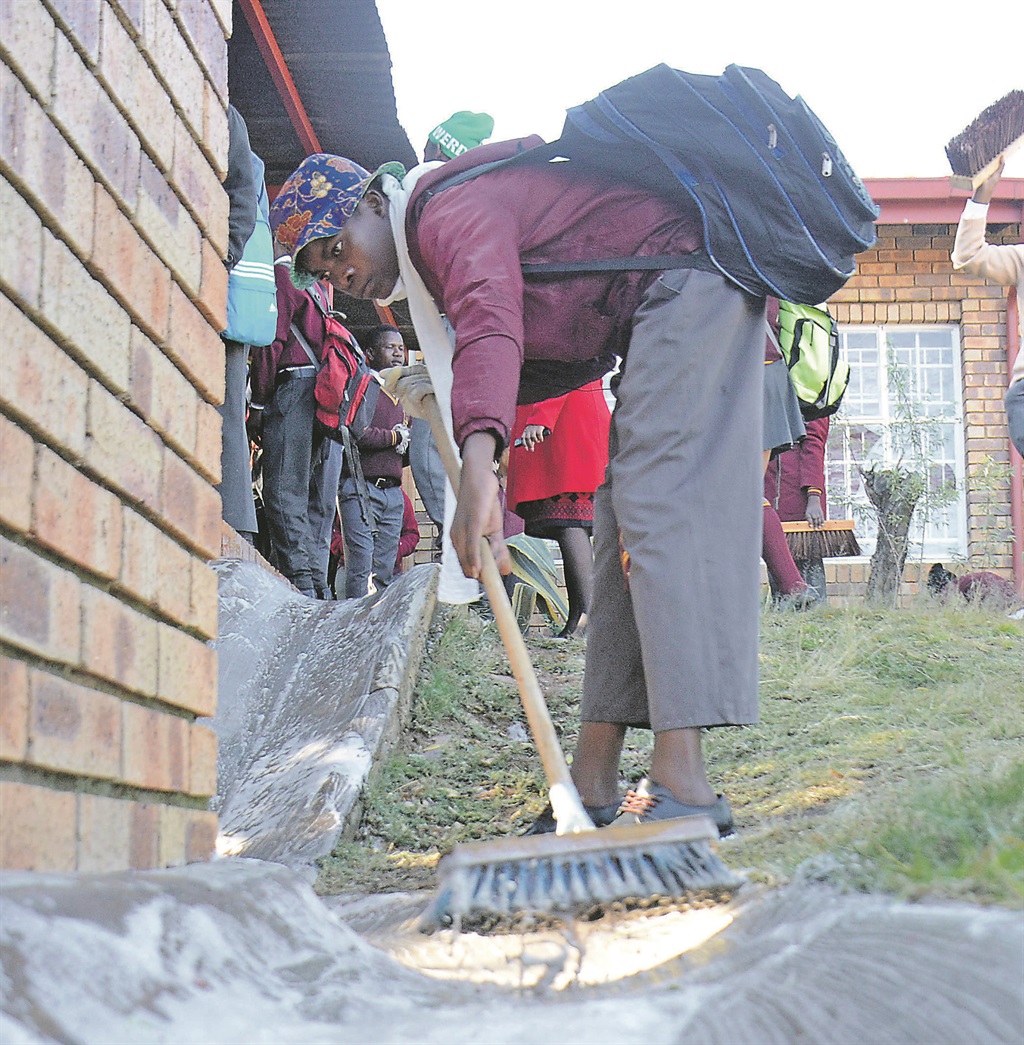
We need to keep students in class so that they can learn. Discipline is critical to boosting learner achievement and improving school outcomes.
June shines as the month when the youth changed the course of South Africa’s history during their fateful protest on June 16 1976 against apartheid education 40 years ago.
While it is important to us as government to ensure that the youth reap the benefits of democracy and their constitutional rights as citizens, they must bear in mind that discipline is the key to success. This holds true for all times and for people of all age groups – from before 1976 to today, and beyond.
Currently, there are many temptations that can lure a learner away from what matters. That is why my heart and spirit sank last month, when learners vandalised the Orlando High office building and library, in protest at the suspension of a teacher.
In all Gauteng schools – and in any community – pride can be derived from the discipline evident there. Unfortunately, this trait was lacking at Orlando High.
Discipline has two aspects. The first reflects a person showing restraint, wisdom and authority when mentoring someone they are responsible for – such as a parent-child relationship.
The second involves the personal discipline that ideally comes as a result of the first, and that helps lead to the positive choices so important for success in life.
If everyone agrees that discipline is key to safety in school, why do we still have a problem?
Discipline in school is different today from what it was in the past. But psychologists and certain valid investigations have shown that learners who act up express various reasons for doing so. Some think that teachers do not care about them. Others do not want to be in school and no longer consider goal-setting and academic success important. Some are unaware that their behaviour will result in punishment.
Discipline starts with self-discipline, which encompasses more than willpower. It is the ability to see beyond distractions, focus on a goal and do what it takes to achieve it. It includes foresight and the ability to handle frustration. It is the internalised voice that guides a person’s choices.
In my world, in schools that value discipline, everyone is expected to have a place for everything and to keep everything in place.
Discipline has to be internalised. Unless it comes from within, no matter how strongly imposed, discipline would be so resented that it would be honoured more by its breach than its observance.
Thus, in schools that try to live by an institutional culture, the spirit of discipline is instilled by externally imposed practices and rules of conduct. These may be imposed from the top and enforced with rewards for conformance and sanctions for nonobservance.
Discipline starts at home. Parents initially explain things to toddlers, guiding them as they learn. When mistakes are made, they provide comfort for a noble effort and remind the child of the benefits derived in persevering despite challenges.
With time, the voices of parents or teachers on which the children rely must be internalised so that the school-age child can begin to reason and solve problems independently.
It is this spirit of internalised discipline that we now need to bring to our communities and national society.
We have rules of conduct for almost everything. In fact, we have many laws regulating behaviour in our public spaces. But we need effective ways of enforcing them. As we do in our homes, offices, communities and schools, we should have ways to reward conformance and punish nonobservance.
Above all, we need to have a continuing programme of reminders on appropriate conduct in schools so that, in time, learners can make their own rules and internalise the spirit behind them. It is when we see discipline observed in our community and society that we give a concrete face to the rule of law, which at last should be made to work for our common benefit instead of being abused for the purpose of opposing it.
To learners, I say discipline is the ultimate tool for personal empowerment. It means taking control of your inner self and getting your life in order. You need to commit to doing this and honour that commitment to yourself.
Lesufi is Gauteng’s MEC for education




 Publications
Publications
 Partners
Partners








